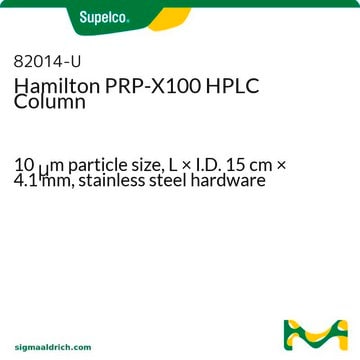850306C
Avanti
07:0 PC (DHPC)
1,2-diheptanoyl-sn-glycero-3-phosphocholine, chloroform
Synonyme(s) :
DHPC; PC(7:0/7:0)
About This Item
Produits recommandés
Pureté
>99% (TLC)
Forme
liquid
Conditionnement
pkg of 1 × 20 mL (850306C-500mg)
pkg of 2 × 4 mL (850306C-200mg)
Fabricant/nom de marque
Avanti Research™ - A Croda Brand 850306C
Concentration
25 mg/mL (850306C-200mg)
25 mg/mL (850306C-500mg)
Conditions d'expédition
dry ice
Température de stockage
−20°C
InChI
1S/C22H44NO8P/c1-6-8-10-12-14-21(24)28-18-20(31-22(25)15-13-11-9-7-2)19-30-32(26,27)29-17-16-23(3,4)5/h20H,6-19H2,1-5H3/t20-/m1/s1
Clé InChI
RBFSPQDASPEAID-HXUWFJFHSA-N
Description générale
Application
- in the preparation of vesicles
- to test the stability of purified cytochrome b558
- in the formation of lipid bicelles
- as an additive added to the supernatant
Conditionnement
Informations légales
Mention d'avertissement
Danger
Mentions de danger
Classification des risques
Acute Tox. 3 Inhalation - Acute Tox. 4 Oral - Aquatic Chronic 3 - Carc. 2 - Eye Irrit. 2 - Repr. 2 - Skin Irrit. 2 - STOT RE 1 - STOT SE 3
Organes cibles
Central nervous system, Liver,Kidney
Classe de danger pour l'eau (WGK)
WGK 3
Certificats d'analyse (COA)
Recherchez un Certificats d'analyse (COA) en saisissant le numéro de lot du produit. Les numéros de lot figurent sur l'étiquette du produit après les mots "Lot" ou "Batch".
Déjà en possession de ce produit ?
Retrouvez la documentation relative aux produits que vous avez récemment achetés dans la Bibliothèque de documents.
Articles
The critical micelle concentration (CMC) can be approximately defined as the lipid monomer concentration at which appreciable amounts (>5% of total) of micellar aggregates first begin to appear in the equilibrium: nM1<=>Mn
Notre équipe de scientifiques dispose d'une expérience dans tous les secteurs de la recherche, notamment en sciences de la vie, science des matériaux, synthèse chimique, chromatographie, analyse et dans de nombreux autres domaines..
Contacter notre Service technique









